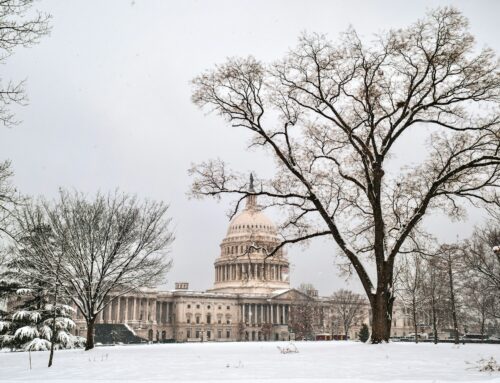The House and Senate passed the farm bill earlier this week, crossing out one item from its lame duck legislative to do list. While there is plenty pending for next week, Members are apparently still a bit afloat as to what to do come January. One such Member is soon-to-be House Agriculture Committee Chairman Collin Peterson (D-MN) who observed this week that “It will be good to be chairman with not much to do.”
Newsflash: That is not how it works.
The farm bill was a big lift. But it was also a big whiff when it comes to the challenges facing agriculture. So here are a few suggestions of how Congress can make itself useful.
Pump the brakes on the spending spree
The 2018 Farm Bill has an official price tag of $867 billion. Like the legislative lemon it always is, the actual price tag is going to be much greater. Think hundreds of billions greater. That’s what happens when instead of closing a loophole that lets thousands of fake farmers receive checks from farm programs, you actually expand the loophole so every cousin, niece, and nephew can also pile on. When you increase government guaranteed prices. And dozens of other provisions. We’ll only know the true price after the checks are out the door.
In the meantime lawmakers must not pull a tax reform (where a package of special interest tax breaks was introduced literally ONE DAY after passage of last year’s massive tax cut) and immediately start demanding more cash. Some are already looking to attach tens of billions of dollars in emergency aid to a year-end spending package. This is even before previous “emergency” payments for the 2017 hurricane season, which hit many of the same farm businesses, have gone out the door. Step back. Drop the debt-financed debit card. Breathe.
Give farmers the stability and predictability you promise by helping stop the trade war
President Trump’s decision to increase tariffs, and foreign retaliatory tariffs done in response, are tearing through the economy and tearing down businesses, especially in agriculture. Yet during floor speeches on the bill only two Members of Congress, Democrats Ron Kind (WI) and Earl Blumenauer (OR), pointed out the fact this bill does nothing on tariffs. Not a single product, from soybeans to strawberries, will have its tariffs removed. Not a single market now effectively closed to American producers, from ginseng to China or apples to Mexico, will be reopened.
The 116th Congress needs to reassert itself and take the lead on helping the president chart a better path to obtaining better trade deals. They can do this by starting with conducting oversight.
Provide robust oversight of USDA
There are a lot of provisions in this 540 page monstrosity mega bill. It will take USDA months, or even years, to implement every provision. Congress must hold the administration’s feet to the fire to ensure it happens. But oversight goes beyond 2018 farm bill implementation and into the overall workings of USDA and its various agencies. Save taxpayers and farmers money by renegotiating the crop insurance subsidies that companies get for selling no-risk-to-them crop insurance. Hold some hearings to find out what USDA will do to reduce farm program payment error rates and ensure dead farmers don’t get cash. Any oversight would be a marked improvement.
Ensure the Secretary of Agriculture follows the law
We aren’t fans of this bill. Did we already mention that? But it’s the product of a give and (mostly) take in Congress and once the president applies his signature, it’s the law of the land. Too often, however, the will of Congress – as written in the law – is subverted in implementation. The 2014 farm bill explicitly stated farm bill funds could not be used to pay for pumps to blend and dispense high octane corn ethanol at gas stations. Secretary Vilsack ignored the law and pumped $100 million into the projects anyway. Under the guise of “trade assistance” Secretary Perdue started funneling $4.7 billion in direct payments to select farming businesses after the 2014 farm bill explicitly ended the direct payments program. Chairman Peterson and his counterparts need to defend the integrity of Congress and preempt the Secretary from any other such actions he may be tempted to initiate.
There is plenty on the plate for the 116th Congress. Passage of a farm bill that fails to fix trade, or create a cost-effective, transparent safety net responsive to need in no way changes that fact. If Chairman Peterson wants to rest on his laurels, there are plenty of other young bulls who’ll be happy to take his place as he goes out to pasture.










